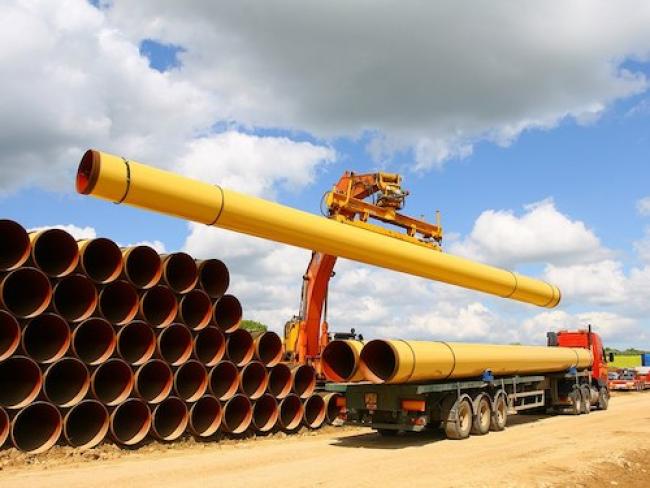Articles Menu

January 25, 2019
Government support for six new tar sands/oil sands pipelines and four major liquefied natural gas (LNG) projects, along with assorted tax cuts and regulatory breaks, led the wish list the Canadian Association of Petroleum Producers (CAPP) released Tuesday in advance of the provincial election coming up in Alberta this spring.
The country’s leading fossil lobby wants provincial policies that will double the Alberta fossil industry’s growth rate by 2020 and vault Canada into fourth place among global oil producers, ahead of China and India. It also wants the country to push past Iran and Qatar to become the world’s third-biggest source of natural gas.
The six pipelines traversing CAPP’s field of dreams include the Trans Mountain pipeline expansion, the Keystone XL pipeline, and the Line 3 replacement project, all to be completed by 2020, plus provincial policies to “support and create the conditions to complete three additional export pipelines to Canadian coasts by 2025.” It demands a 50% cut in average timelines for project applications, a C$2-billion reduction in regulatory costs, provincial support for an exemption from the federal Clean Fuel Standard for upstream oil and gas operations, and more flexible climate policy that “allows for the growth of greenhouse gas (GHG) emissions-efficient operations.”
“This is a go-at-the-speed-of-Trump climate plan,” said Greenpeace Canada energy strategist Keith Stewart. “Canada would be saying, ‘We’re not serious.”‘
Pembina Institute analyst Nikki Way said CAPP’s plans assume the global energy mix will remain unchanged, despite the rise of renewable energy and electric vehicles and shifts in climate policies. “That’s a dangerous situation for Alberta, banking on a continued thirst for oil that will never cease in our lifetime,” she told CP.
McMillan grounded the wish list in an International Energy Agency forecast that shows global energy demand growing 25% by 2040. “That prediction—one of four scenarios—comes with a 3.0°C rise in global temperatures,” CP notes. “That’s well above the threshold scientists say would cause dangerous changes.”
While CAPP deliberately aimed its recommendations at all the province’s political parties, the United Conservative Party opposition was the first to jump onboard. The recommendations and concerns raised in today’s report reinforce what we’ve been saying,” energy critic Prasad Panda said in a prepared statement.
“There’s a lot of things on which I agree with CAPP and then there’s some things I don’t,” said a more circumspect Premier Rachel Notley. “But that doesn’t mean we can’t find ways to work productively with players within the oil and gas industry to help build our economy for all Albertans.”
“My jaw dropped reading this report,” said Wilderness Committee Climate Campaigner Pete McCartney. “Canada’s oil industry offers nothing but a shrug as climate change already brings wildfires, hurricanes, droughts, flooding, conflict, disease, and poverty to millions of people around the world and here at home.”
[Top photo: Pipeline yard. PIPELINE_MANAGER/wikimedia commons]